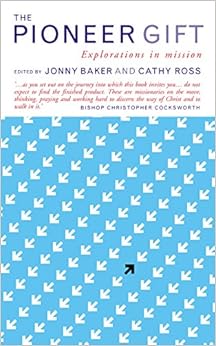Once upon a time there was a handsome man and a beautiful woman. They loved each other and they loved God and the woman longed for a baby girl to share this love with. The daughter she imagined would have warm hazel eyes, soft brown curly hair and a mild, sweet and kind disposition. She would dress her in pretty dresses and everyone would envy the love the little girl had for her. Then one day she got her wish and she gave birth to a girl. But oh no something had gone wrong! Her eyes were almost black and her hair was straight and definitely red! Worse was to come. This child would not do exactly what she was told! She didn’t want to wear the pretty dresses that had been prescribed for her and when they went for a walk she wouldn’t go the way the beautiful woman wanted.
So they each reached out to the handsome man to help them, but he was wrestling with his own demons. When he wasn’t working for God or for man, he would come home and be gripped by the most fearful rages that terrified them both. Once he calmed down he would be filled with such hopelessness and despair that it was like a black hole at the core of his being that threatened to suck him and everyone around him in to certain oblivion. So the little girl tried her best to do what the beautiful woman wanted and she was quite good at it most of the time. That was until sooner or later some disappointment or injustice would come along and cause her to vent her frustration and lose her temper. Then she would be called a ‘little madam’, ‘contrary’ or ‘just like her father’.
As she grew the little girl learned that not only did she have to try and do what the beautiful woman wanted but there was God to obey. She soon discovered that there were things she was not supposed to do because she was a girl and later there were expectations of being a godly wife and then good mother to live up to. And she realised that no matter how hard she tried and how hard she prayed, she would always mess up and then just like her father, the black hole would threaten to engulf her. Then one day God showed her that she was contrary because she saw things differently and He was calling her to other people who found it difficult to be what was expected of them. But this brought criticism from those she looked to for approval and she was scared that the black hole would become so powerful it would harm those she loved most.
It was hard work trying to be faithful to what God had called her to and protecting everyone from the worst of herself. But then one day, on a trip to the seaside, God reminded her that He created the whole universe with all its beauty and diversity, colour and creativity out of blackness, out of a void. She remembered the story of a difficult and misunderstood little girl who made friends with a robin and brought to life a secret garden where miracles could happen and healing could come. As she looked up at the stars God said to the girl, who was now a woman, “You do that, with my help. You do not have a black hole at the heart of who you are, actually there is a garden. I created the earth to be a garden, I was betrayed in a garden but was revealed alive and victorious over death in a garden. My precious, precious child, meet me in the garden.”



 Some people think me odd. This is because I don’t much like being in the country. I have good reason, though. I get hayfever, grass literally gets up my nose! If I walk too fast, asthma is the result and I struggle for breath. And at night it’s just too dark without the comforting glow of light pollution. I fear I will fall in all that disorientating blackness, injure myself and be miles away from swift medical attention. I have, therefore, come to the conclusion that green fields and rolling hills are best enjoyed from the window of a nice, quiet pub with pint in hand.
Some people think me odd. This is because I don’t much like being in the country. I have good reason, though. I get hayfever, grass literally gets up my nose! If I walk too fast, asthma is the result and I struggle for breath. And at night it’s just too dark without the comforting glow of light pollution. I fear I will fall in all that disorientating blackness, injure myself and be miles away from swift medical attention. I have, therefore, come to the conclusion that green fields and rolling hills are best enjoyed from the window of a nice, quiet pub with pint in hand.





